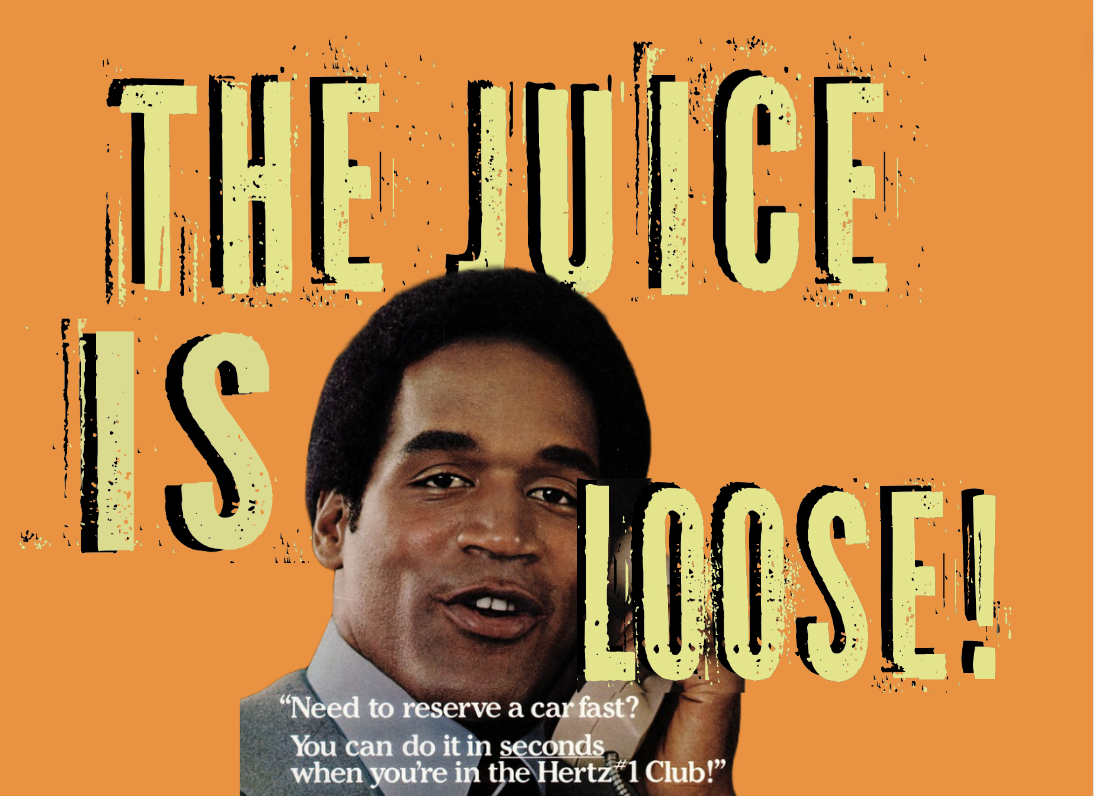“The juice is loose!”
Fans cheered as ex-football star O.J. Simpson and former NFL player Al Cowlings drove along the Los Angeles freeway in a low-speed car chase, pursued by the LAPD, which had called for the surrender of Simpson earlier that morning.
Orenthal James Simpson, known as O.J. Simpson, was born on July 9, 1947, and passed away in Las Vegas on April 10, 2024, at the age of 76, due to complications with cancer. After playing college football at the University of Southern California, Simpson was primarily a running back for the Buffalo Bills between 1969 and 1977. He also played for the San Francisco 49ers from 1978 to 1979.
In 1973, he won the AP MVP award, making history by being the first player to rush for more than 2,000 yards in a season. However, his reputation changed when, on June 12, 1994, Simpson’s wife at the time, Nicole Brown, and her friend, Ronald Goldman, were found stabbed to death outside Brown’s condominium. Simpson quickly became the prime suspect.
English teacher Shozo Shimazaki had different perceptions of Simpson at different periods of Simspon’s murder trial — which began on Jan. 24,1994 — mentioning the different phases of his career, from being a football player to acting in a commercial. The trial changed how he viewed Simpson as a person. Initially, Shimazaki was a major fan of Simpson, however, his admiration of the star changed at the height of the trial.
“It’s clear his claim to fame was through football,” Shimazaki said. “At the time, I was collecting sports cards, and I got a rookie Simpson, so it was sort of a prized possession of my collection. But I feel like he dropped, so there was this fall from grace story as well. Then the image of him went from holding a Heisman trophy to hiding in the back of a Ford Bronco.”
Upon being asked to turn himself in, Simpson led the police on a two-hour car chase in his friend’s white Bronco on June 17, 1994, after which he was arrested for and charged with the murders of Brown and Goldman.
Kennedy Middle School English teacher Cory Greene recalls that during his second year of college, he was watching the 1994 NBA finals in Tahoe when the TV cut to show the infamous car chase. He adds that despite watching the trial, he didn’t have much of an opinion on the case itself but did on the result of Simpson being acquitted, especially due to the intense racial backlash.
“People like to break it down by race because he was African American,” Greene said. “But what I always think about that is that it wasn’t a trial about an African American person. That was a trial of a rich person. And when you’re a rich person, and you can afford the best lawyers in America, you’ve got a really good shot of getting away with murder.”
Shimazaki agrees with Greene’s sentiments, saying that he never thought of Simpson as a model for any social justice movement surrounding race. However, back then, with the Rodney King beatings happening in earlier decades in the LA region, he understands how some may have clung to the idea of race in Simpson’s case.
As a member of MVHS’s mock trial club, senior Vedavi Kavoori says this is a popular case referenced in the club because the trial is a good example of theory and theme, which refer to the argument of a case and the short one-liner that encompasses the theory in a catchy, memorable method. In Simpson’s case, the one-liner was “if the glove doesn’t fit, you must acquit,” a phrase coined by defense attorney Johnnie Cochran, when Simpson was asked to try on a pair of bloody gloves thought to have belonged to the killer of Brown and Goldman. The glove, which the defense team argued was planted by Police Detective Mark Furhman at Simpson’s estate, appeared to be too small for him, and remained a key symbol for his case. This was a significant piece of evidence that eventually resulted in the trial declaring OJ Simpson as not guilty.
Being a fan of Simpson before the trial, Shimazaki believed that the constant news around Simpson tired Shimazaki out, mentioning that the recurring theme was that Simpson couldn’t have a normal life. With the conflicting perspectives of whether or not people thought Simpson was guilty, Shimazaki says that he ultimately lost interest in all things related to Simpson, comparing it to a “broken record.”
Kavoori notes the influence of his death, mentioning his football career and how the trial was brought back into the spotlight. She is content that the case was able to create some significant discussion around issues like racism and wrongful police intervention, even if some of those matters weren’t of the utmost relevance in Simpson’s case.
“OJ Simpson was not the last case where racism came into play — it’s just the most televised,” Kavoori said. “The unfortunate reality is that it happens all the time and we just don’t know about it. Law and trial are portrayed as being fair and just, but in the society that we live in, it’s not. That’s just the simple reality.”












